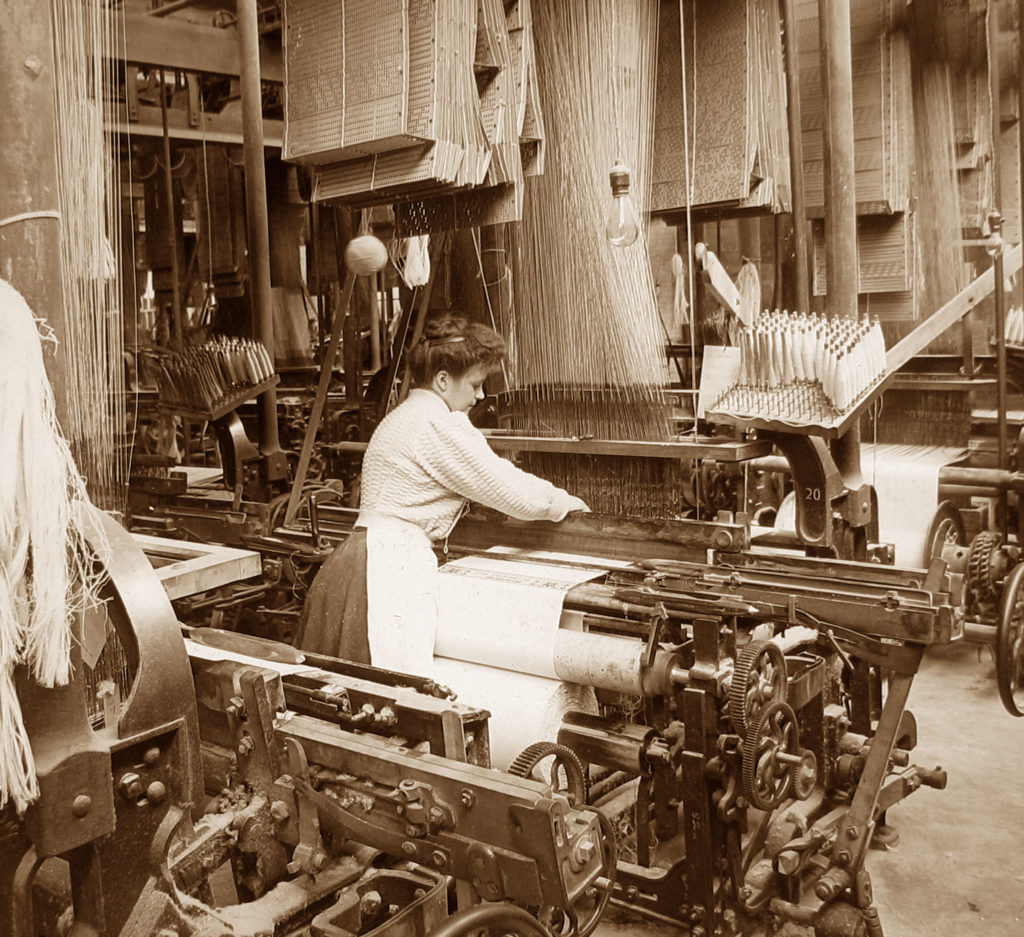The earliest American manufacturing started after the American Revolution in the textile industry. The first American factories were textile mills necessitated by a growing need for independence from Britain. Textile manufacturing also provided income for many poor families in a growing urban country. Because of the American Revolution and the subsequent British restrictions on exporting machinery and technology to America, it took several attempts to revolutionize the textile industry. Home spinners and looms were time consuming and were employed by families to keep themselves clothed and for trade goods, however these methods were not scalable to large industry. It wasn’t until Samuel Slater, trained in Britain in modern textile technology, emigrated to the US in 1790 having memorized factory plans that the first US spinning factory was built. Starting with 9 children running forty foot pedals, the mill had 72 spindles. Eventually the machinery was operated by water power. While American factories had better conditions than some British ones, in general, mill workers were subjected to very harsh conditions and restrictions.
In 1813, the Boston Manufacturing Company was formed as the first integrated textile factory, which performed every function necessary to turn raw cotton into finished cloth. Determined to avoid the harsh conditions in British manufacturing, the Boston Manufacturing Company hired young, unmarried women. Working in difficult conditions, 12 hours a day, 6 days a week, the young women were overseen by a matron and adhered to a strict moral code and curfew. Even with these stringent rules, these young women were often afforded a sense of luxury and freedom not found with farm life.
The growing number of manufacturing facilities and the Industrial Revolution marked the beginning of the move from a rural community based country to an urban industrial one. It raised significant questions about the place of manufacturing in the community and country’s future. While Thomas Jefferson argued against the growing manufacturers, promoting the independent farming family, Alexander Hamilton was a proponent of manufacturing and the opportunities it afforded the working poor.
While there have been significant advancements from the initial textile factories, in technology, safety and production, the original idea behind the early manufacturers remains the same: create needed goods economically and quickly.
Please share your comments or questions with us below and be sure to visit www.gesrepair.com or call us at 1-877-249-1701 to learn more about our repair services. We’re proud to offer Complete Repair and Maintenance on all types of Industrial Electronics, Servo Motors, AC and DC Motors, Hydraulics and Pneumatics. Please subscribe to our YouTube page, Like Us on Facebook! Thank you!
